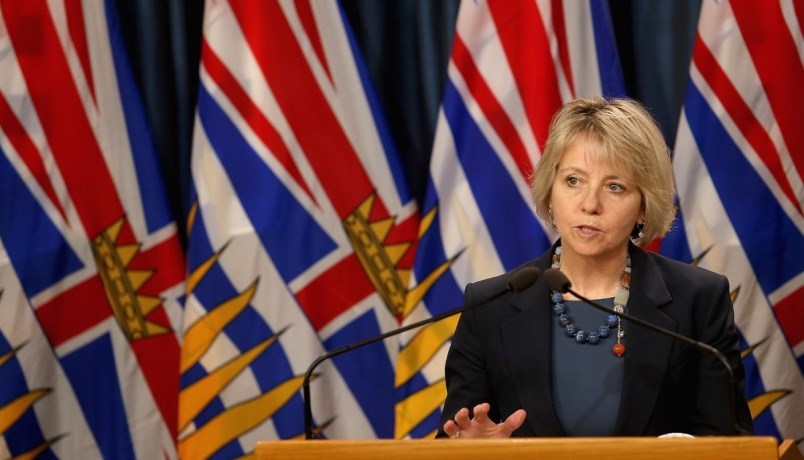Provincial health officer Dr. Bonnie Henry ordered all nightclubs and stand-alone banquet halls in the province to be closed on Tuesday.
The order comes into effect immediately. Henry also ordered other bars, pubs and restaurants to stop liquor service at 10 p.m. daily, and close by 11 p.m. unless they are serving food. Bars, pubs and restaurants are also ordered to keep music or other background noise limited to normal conversational levels, to prevent people from needing to shout in those situations, Henry said.
"We recognize these venues have tried," Henry said. "(But) they have been a major source of (COVID-19) transmission. We are starting to see spill-over into other areas."
Henry said closing businesses or other venues is a last resort, and public health officials worked with the industry to try to allow them to stay open safely. However, there has been a significant number of incidents were large numbers of people have been exposed to COVID-19, she said.
A lot of public health time and resources have been poured into tracing people who have been exposed at nightclubs, banquet halls and large private parties, she said.
Henry said her office is working with the B.C. Liquor Commission to identify which liquor licensees are operating as nightclubs, and acknowledged that some larger bars can become more club-like later in the night. That was part of the reason for the 10 p.m. restriction on liquor service, she said.
"Pubs and restaurants have been doing a really great job. I've very confident what we're doing in pubs and restaurants is working, and I hope it continues to work," Henry said. "It's about trying to take away some of that temptation. We've heard from (bar) staff, when people have alcohol the lineups get more unruly, people gather together."
The summer provided everyone a much-needed break, a change to socialize while cases were fairly low, she said. But cases are on the rise and the province is in "a transition period, where we have to go back to basics."
"The Labour Day weekend is over, and as we get back to work for many people and we get back to school for many people... it is time to cut back on our social interactions," Henry said. "As our cases are climbing, we need to make some changes to reduce the risks."
One of the most important measures to keep children returning to school safe is to reduce COVID-19 transmission in the community, she said.
"We now need to put our focus on the important things, the priority things like having children back in schools," Henry said.
The impact of having to re-close schools could be "immense," and have "long-term, generational impacts," she said.
Henry will be joined by Premier John Horgan and B.C. Health Minister Adrian Dix on Wednesday afternoon to announce the province's plans heading into the fall.
DOZEN NEW CASES IN THE NORTH
There have been 12 new cases of COVID-19 in the Northern Health region since the numbers were last updated on Friday. As of Tuesday, there had been a total of 186 cases of COVID-19 in northern B.C. since the start of the pandemic.
Data released by the B.C. Centre for Disease Control on Tuesday showed 31 active cases in the north, with five people hospitalized – including two in intensive care.
Throughout the province there were 429 new cases since Friday's update, bringing the province's total number of cases up to 6,591 since the start of the pandemic.
There were 1,386 active cases in the province, including 32 people in hospital – 12 in intensive care, Henry said. Another 3,063 people had potentially been exposed and were being monitored by public health officials.
Two long-term care residents died of COVID-19 since Friday, bringing the province's death toll from the pandemic to 213.
"There have been a number of exposure events over the weekend, particularly in the Lower Mainland," Henry said. "All of us need to find that balance. Now is the time to go back to our smaller, safer social interactions."


